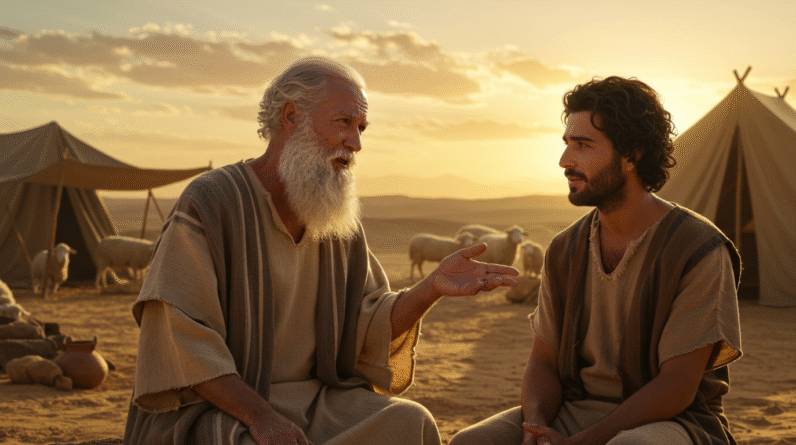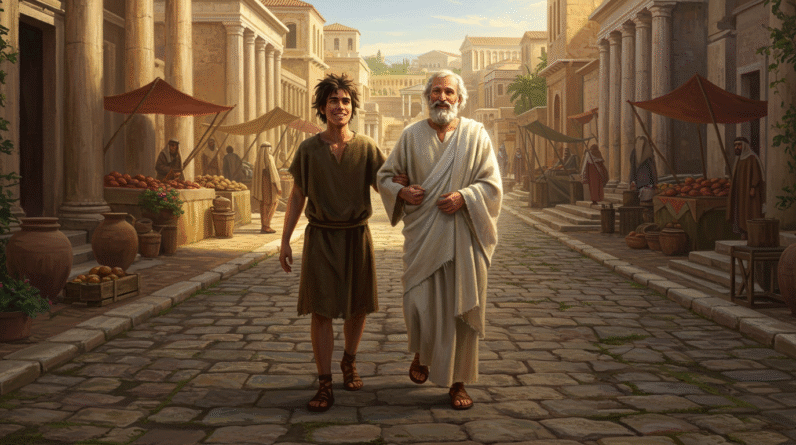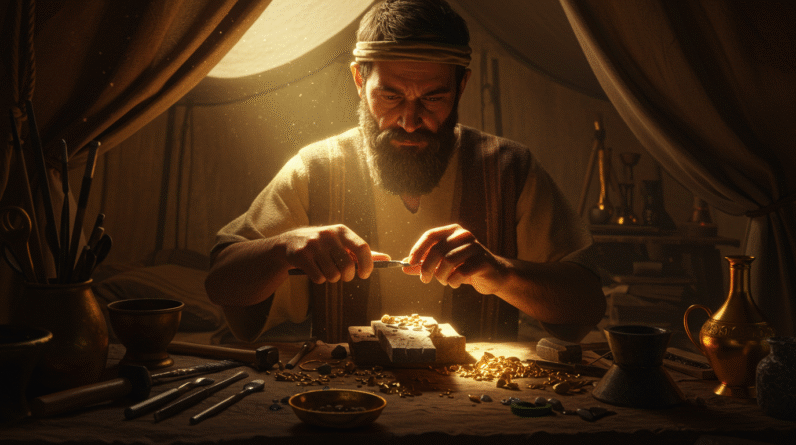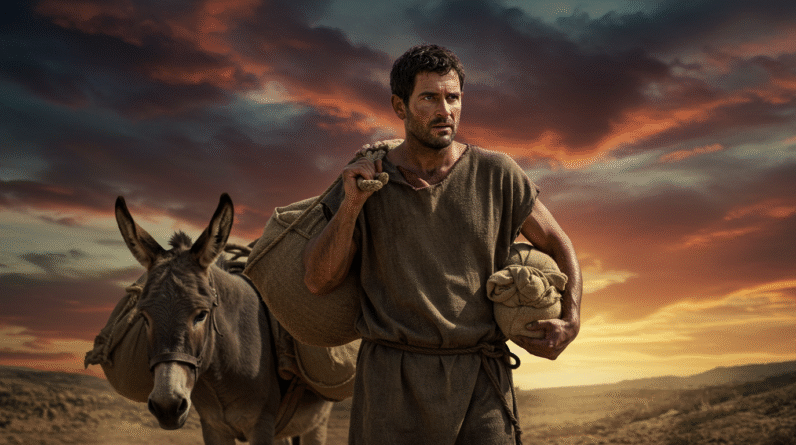Explore the divine artistry of Bezaleel, the craftsman who shaped the Tabernacle, blending faith, creativity, and skill. Discover his timeless impact on artists today.
The Artistic Legacy of Bezaleel in the Bible
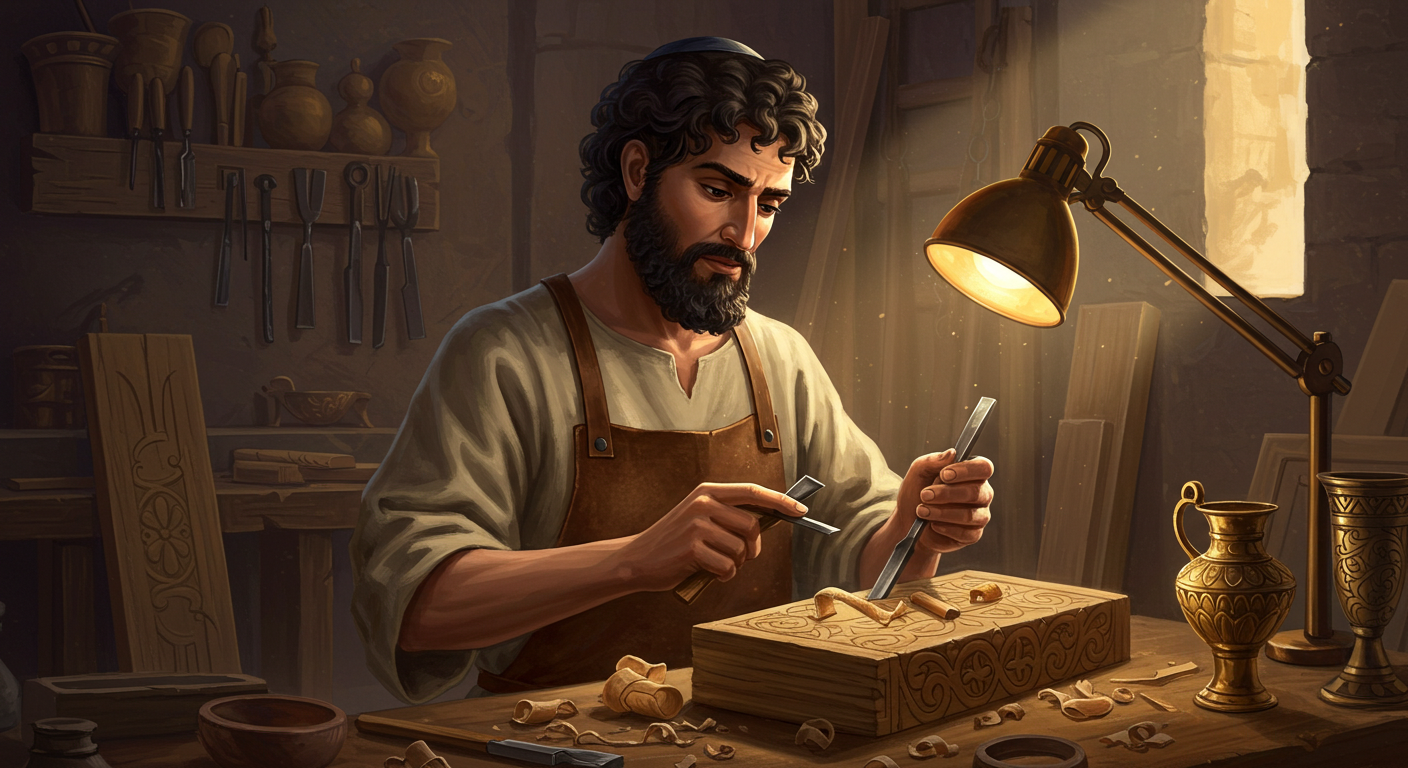
Introduction
Bezaleel, a master craftsman mentioned in the book of Exodus, plays a pivotal role in the construction of the Tabernacle, a sacred structure that housed the presence of God among the Israelites. Positioned at the heart of one of the most significant spiritual endeavors of the Old Testament, Bezaleel’s story unfolds as a testament to the divine gift of artistry and creativity. As the chief artisan appointed by Moses, Bezaleel’s contributions are immortalized not merely in the religious relics he helped craft, but also in the enduring inspiration his story provides to artists and creatives throughout history. His tale underscores the profound intersection of faith and skill, offering valuable insights into the coexistence of divine calling and human craftsmanship.
Their Story in the Bible
Bezaleel’s journey in the Bible begins when Moses, leading the Israelites through the wilderness, receives the Ten Commandments from God on Mount Sinai. Here, God commands the construction of the Tabernacle—a place where God would dwell among His people. It is at this point that God singles out Bezaleel, filling him with the Spirit of God, and granting him wisdom, understanding, knowledge, and all kinds of skills for artistic workmanship (Exodus 31:1-5).
Bezaleel was tasked with creating intricate details and furnishings for the Tabernacle, a responsibility that highlighted his profound craftsmanship and creativity. Alongside Aholiab, Bezaleel’s expertise was essential in executing God’s detailed designs for the Ark of the Covenant, the menorah, the altar, and the priestly garments (Exodus 35:30-35). This endeavor required not only artistic skill but also a deep reverence and adherence to the divine specifications laid out to Moses. By doing so, Bezaleel’s creations became more than just art; they were living expressions of faith and obedience, vibrant to facilitate the worship and encounter of a community with their deity.
Unfortunately, the ultimate masterpieces crafted under Bezaleel’s keen eye do not have the physical remnants that stand today. However, their description endures as a testament to the divine blessing upon creative expression. His narrative is a testament to a time when divine inspiration and human creativity met, leaving a legacy enshrined in biblical history and influencing countless artistic interpretations over the millennia.
Lessons from Their Life
From Bezaleel’s life, we derive several lessons pertinent to our daily ventures. First, there is the recognition and appreciation of divine inspiration in creative pursuits. Whether you’re crafting, writing, painting, or implementing new ideas, acknowledging that inspiration and skill might have higher roots can open your heart to new dimensions of creativity.
Additionally, Bezaleel’s story showcases the importance of community and collaboration. He worked closely with Aholiab and a team of artisans, illustrating that great feats often require collective effort. This principle applies not just in artistic endeavors but can be extended to business projects, community building, and personal growth. Collaboration enriches the creative process by blending diverse perspectives and talents, often leading to far more remarkable outcomes than solitary efforts.
Finally, Bezaleel exemplifies the virtue of obedience and faithfulness to a higher calling. In following God’s intricate instructions for the Tabernacle’s construction, he teaches the value of adhering to divine or moral guidelines in our quest for excellence. This lesson reminds us of the fundamental balance between creativity’s freedom and the discipline necessary to nurture it—a relevant takeaway for anyone shaping their life and endeavors with purpose.
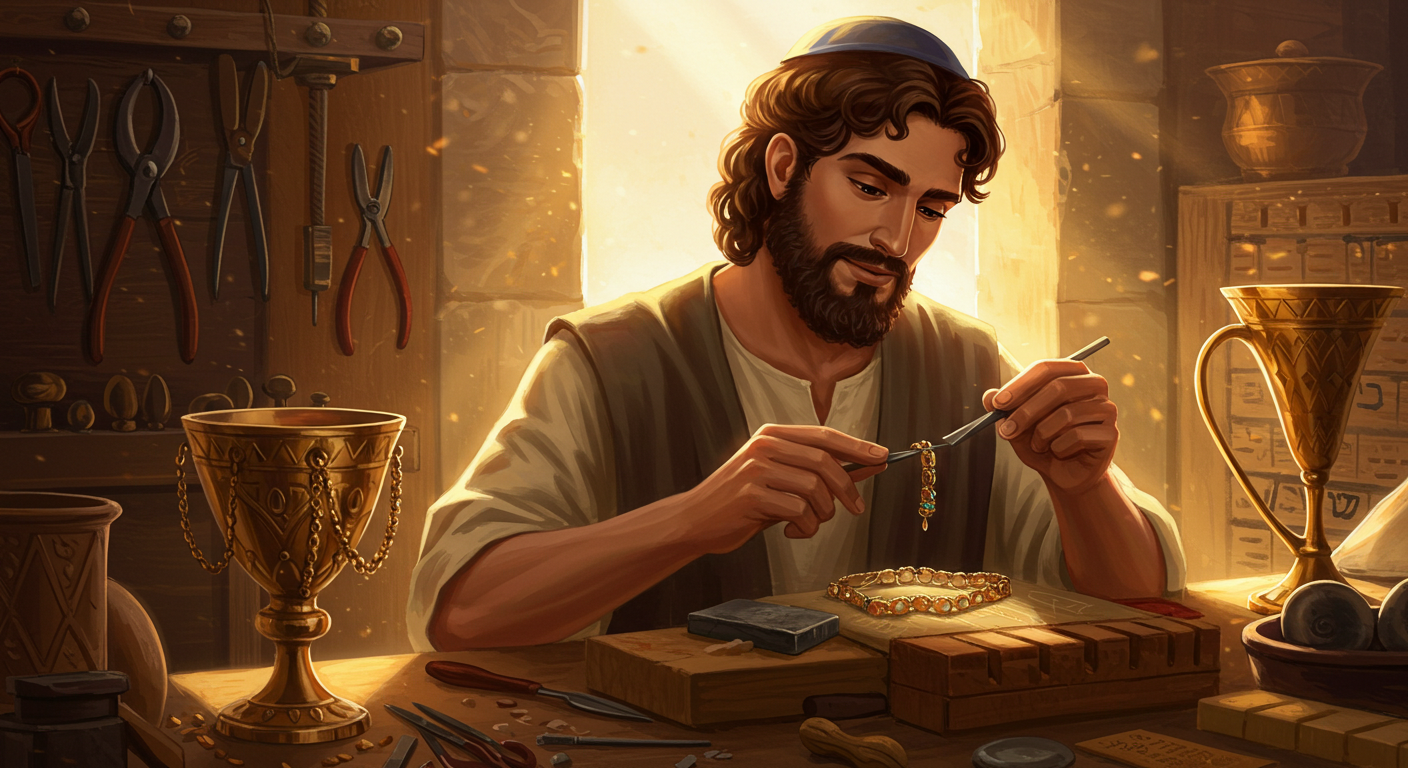
Connection to Today’s World
In today’s fast-paced, visually-driven world, where creativity and innovation are prized across industries and cultures, Bezaleel’s legacy resonates deeply. The importance of nurturing one’s talents and dedicating creative skills to endeavors that foster community and spiritual growth cannot be understated. Bezaleel’s life inspires us to appreciate artistry not solely as a means of personal expression but as a service to others and a work of beauty that can elevate the human experience.
Moreover, in the modern creative industries, from art to technology, the story of Bezaleel highlights the balance between innovation and tradition. His ability to follow detailed instructions while bringing a divine vision into tangible form mirrors the constant dance creatives perform between innovating new trends and respecting foundational principles.
Today, Bezaleel’s artist’s journey encourages individuals in all fields to pursue their creative callings passionately, acknowledging the potential for their work to impact communities, much like the Tabernacle did for the Israelites. This narrative invites us to create authentically and generously, using our unique skills to contribute something of beauty and value to the world, regardless of our medium.
Key Bible Verse
“Then Moses said to the Israelites, ‘See, the Lord has chosen Bezaleel the son of Uri, the son of Hur, of the tribe of Judah, and he has filled him with the Spirit of God, with wisdom, with understanding, with knowledge and with all kinds of skills to make artistic designs for work in gold, silver, and bronze.'” (Exodus 35:30-32)
This verse captures the essence of Bezaleel’s divine appointment. It reflects the comprehensive equipping provided by God to fulfill a purpose of spiritual and communal importance. Not only does it emphasize the blend of divine inspiration and human diligence, but it also celebrates artistry and craftsmanship in its highest form—activities infused with intention and guided by a sacred mission.
Thought-Provoking Question
How can you use your unique skills and talents to enrich your community and contribute to a greater purpose, as Bezaleel did with his craftsmanship for the Tabernacle?
Historical/Cultural Context
Understanding Bezaleel’s context requires a glimpse into the Israelite society during the Exodus. The creation of the Tabernacle was a monumental task, with its intricate design representing the heart of Israelite worship and community life. During this period, craftsmanship was not merely technical; it was sacred work. The artisans contributed more than labor—they played an integral role in symbolizing and enabling the connection between the divine presence and the congregation.
Comparison with Other Characters
Bezaleel’s story can be compared to that of Noah, another craftsman who received direct instruction from God to build something of great purpose—the ark (Genesis 6:13-22). Both men exemplify obedience, diligence, and divine partnership in their skilled labor. Each narrative underscores a similar theme: creativity and craftsmanship are divinely inspired works that serve larger, transcendent purposes.
Prayer
Lord, thank You for the story of Bezaleel and the reminder that our skills and talents are gifts You can use for greater purposes. Help us recognize our unique callings and labor diligently, crafting beauty in our lives and communities. Inspire us to collaborate, honor tradition, and innovate with creativity and passion. Amen.


